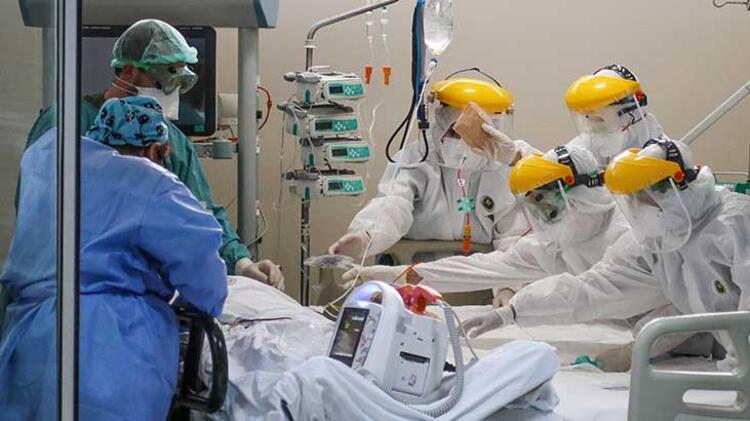
COVID-19-associated hospitalization rate has been declining but severe infection care is rising in Turkey, the health minister has said.
“There has been a 32 percent decline in hospitalization over the past three days,” Fahrettin Koca wrote on Twitter on Aug. 11.
However, he added the number of seriously ill people, which is an important indicator of how the outbreak unfolds, continues to rise.
Most of the new cases were recorded in Istanbul, the capital Ankara, the Central Anatolian province of Konya and the southeastern provinces of Diyarbakır and Şanlıurfa, according to the minister.
Officials earlier this week suggested that the government may consider introducing stricter measures in September to curb the spread of the coronavirus as daily new infections have spiked above 1,000.
Authorities suggested that restrictions like the ones introduced in April may be re-imposed starting mid-September.
Professor Mehmet Ceyhan, one of the leading experts on the pandemic in Turkey, observed that only few people followed the social distancing and face mask rules in the popular holiday resort town of Bodrum.
Health professionals have been warning that people are ignoring the anti-virus measures during their holiday, which may eventually result in a spike in infections.
“Only 5 percent of the people on the street were wearing face masks, but social distancing was almost non-existent. And people were not reacting to those who were ignoring the rules,” Ceyhan told Demirören News Agency.
Ceyhan, who vacationed in Bodrum, said he did not step outside after observing people’s complacent attitude.
He noted that beaches were overcrowded, which may serve as a hotbed for the virus to spread.
“The strip on public beaches are too narrow, thus it is not possible to prevent large crowds from gathering there. This is dangerous. However, hotels were better prepared. Large hotels appear to have taken necessary precautions,” said Ceyhan from Hacettepe University’s department of pediatric infections.
He also pointed out the potential risks from arriving international tourists.
“Foreign holidaymakers prefer the all-included vacation deals. Thus, they do not venture outside. But the infection may spread through hotel staff and the number of infections may increase,” Ceyhan said.